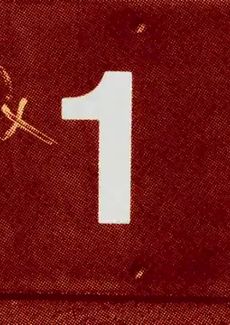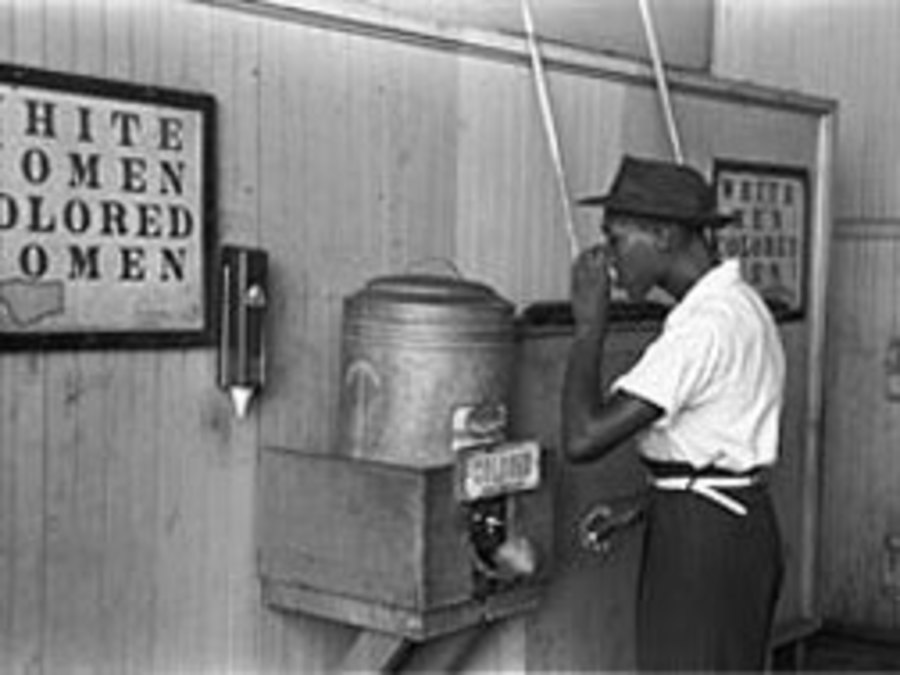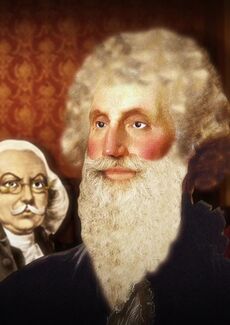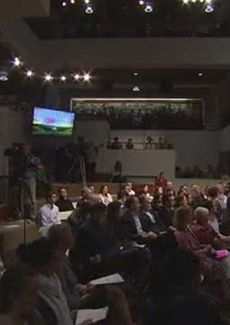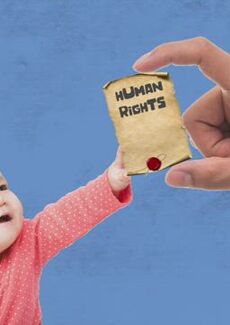 Try these videos to get started. Must be on campus or login with your COM account for off campus access.
Try these videos to get started. Must be on campus or login with your COM account for off campus access.
Want more on finding media? Try Articles & Media.
-
10 Things You Don't Know About Civil Rights (43:00)
In "10 Things You Don't Know About," punk rock icon Henry Rollins uncovers crazy twists and tidbits behind the historical tales, figures, and places you only thought you knew. Whether he's analyzing centuries-old documents at the National Archives or exploring the inside of a dead gangster's speakeasy, he's on a mission to discover the info every casual history fan needs to know.
Henry cracks open the books on one of America's most defining chapters--the Civil Rights movement. On a road not often traveled, he crosses the country in search of the unknown stories that built a generation of heroes.
-
Bill Moyers Journal: Slavery, Race, and Inequality in America (57:00)
The Pew Research Center recently reported that black Americans are more dissatisfied with their progress now than at any time in the past quarter century. In this edition of the Journal, Bill Moyers gets perspective from historical and cultural sociologist Orlando Patterson and Glenn C. Loury, an economist and expert on race and social division. Moyers also interviews the Wall Street Journal’s Douglas Blackmon about his book Slavery by Another Name: The Re-Enslavement of Black Americans from the Civil War to World War II. In addition, the program previews the POV documentary Traces of the Trade, an examination of racial inequality in America through the prisms of the legacy of slavery and the current socioeconomic landscape. Broadcast date: June 20, 2008.
-
The Bill of Rights: What is it and What Rights Does it Guarantee? (2:16)
The right to stand up for what we believe in is as American as apple pie and is protected
under US law by the Bill of Rights: a list of ten amendments to the US Constitution that
almost never existed.
-
-
Fight for Freedom: Confronting Modern-Day Slavery (50:00)
Harvard University and the CNN Freedom Project join forces for a special panel event examining the fight against human trafficking in America.
-
Housing Discrimination (09:23)
Description
Housing providers often refuse to deal with people with certain dialects because of stereotyped traits. Fair housing laws reduce incidents of overt refusal, but providers adopt different tactics like linguistic profiling.
-
Mock Trial: Murthy v. Missouri: Free Speech, Government, and Misinformation of Social Media Platforms (59:24)
Does the government have the right to pressure social media platforms to take down posts that spread dangerous misinformation, disinformation, and false claims that threaten public safety? Under the administration of President Joe Biden (D), various federal agencies—including the Centers for Disease Control and Prevention, the nation's leading health agency; the office of U.S. surgeon general Vivek Murthy; and the Federal Bureau of Investigation—communicated with several top social media platforms in an attempt to clamp down on such misinformation. Two states—Louisiana and Missouri—and five individuals sued these agencies, arguing that such efforts amounted to government censorship, and the case, Murthy v. Missouri, ended up before the U.S. Supreme Court in 2024. Supporters of the Biden administration's efforts argue that government officials communicated with social media companies only about content that posed a serious danger to public health and safety, such as inflammatory political conspiracy theories or lies about proper health measures during a pandemic. Administration officials, they contend, neither coerced social media platforms nor commandeered their decision making. Opponents of the Biden administration's effort argue that government officials pressured social media companies into silencing dissenting views on their platforms, violating the free speech rights of users who had their posts taken down. These actions, they contend, violate the First Amendment to the U.S. Constitution, which protects freedom of speech and expression. In this mock trial, experts debate the issues of free speech, government, and misinformation on social media platforms.
-
Standardized Lies, Money & Civil Rights: How Testing is Ruining Public Education (1:16:00)
Standardized Lies, Money & Civil Rights: How Testing is Ruining Public Education exposes the standardized testing industry and how it negatively affects public education. Parents of public school children must see this film since it addresses the dangers of high-stakes tests, dispels the mythology of the achievement gap, and questions the validity of education reform.
-
Watching Me Watching You: Nanotechnology and Civil Liberties (58:00)
Nanotechnology will likely transform the security and surveillance industries in the near future. Governments, corporations, and even individuals may have highly sophisticated sensors and tracking apparatus at their disposal—keeping tabs on everyone from customers to potential terrorists to aging parents. In this Fred Friendly Seminar moderated by Peabody award-winning correspondent John Hockenberry, hypothetical situations are used to highlight issues of privacy, public safety, and their intersection with nanotechnology. Who gets tracked? Must they be informed? Who has the authority to engage in such activities? Who has access to the information? Can we reap the benefits of these powerful new technologies while preserving the right to privacy and individual liberty?
-
Why Should Human Rights Be Universal? (2:00)
This video explores why human rights should be universal and how the declaration of human rights evolved.
Release Date
-
Your Face Is Ours: The Dangers of Facial Recognition (58:37)
Clearview AI is redefining our privacy by working to identify and compile the faces of every human being on the planet, scraping images from such social media platforms as Instagram, Facebook, and LinkedIn without the owner's knowledge or consent. It claims that the database will serve as a force for good, helping to solve crimes and prevent espionage. But its clients include Middle Eastern dictatorships and its links to the far-right and the source of its funding have raised other concerns. The risks it poses are immense.
To the concern of many, Clearview’s technology has been licensed to the United Arab Emirates, where those who dare criticize the regime end up in prison or in exile. In America, Clearview AI is used to track undocumented immigrants and surveil protesters during civil unrest, as well as identify criminals.
What are the risks of false identification? What are the legalities of this technology in the EU where it is illegal to collect people's biometric data without their explicit consent? Do the benefits of this technology outweigh its risks of misuse? This program looks at the technology and how it impacts society, featuring an interview with Clearview’s CEO, Hoan Ton-That.
![]() Try these videos to get started. Must be on campus or login with your COM account for off campus access.
Try these videos to get started. Must be on campus or login with your COM account for off campus access.